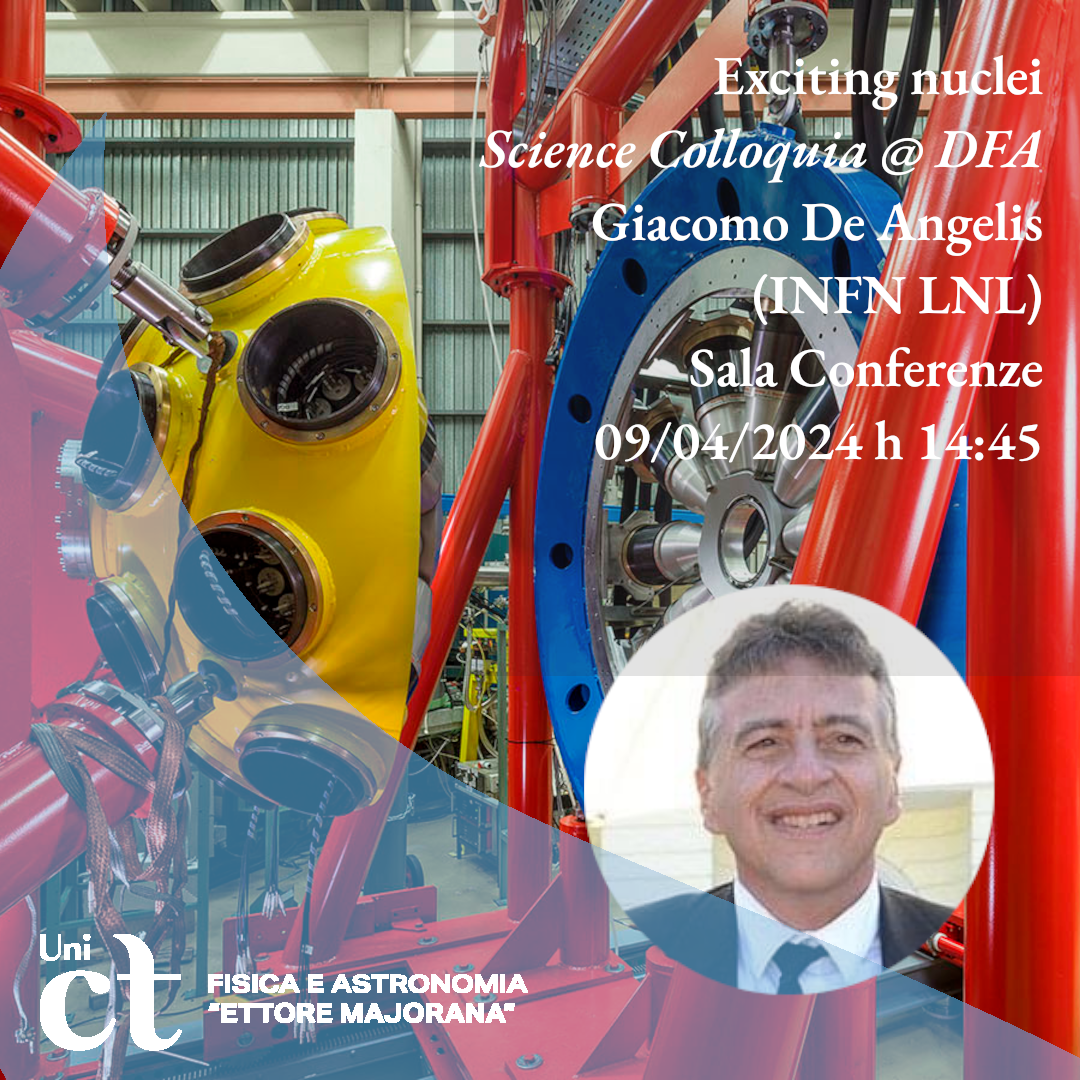[Fisica CT] [Events] Fwd: Science Colloquium at DFA (Giacomo De Angelis, 09/04/2024 h 14:45)
Gio, 04/04/2024 - 08:02 — Anonimo
Tutte le persone interessate (in particolare, Studentesse e Studenti, Dottorande e Dottorandi al DFA) sono invitate a partecipare.

Martedì 9 aprile p.v., con inizio alle ore 14:45, presso la Sala Conferenze del DFA (pianterreno), il Dott. Giacomo De Angelis (INFN LNL) terrà uno Science Colloquium dal titolo Exciting nuclei: hidden symmetries, stellar archaeology, climate change and other paraphernalia.
Tutte le persone interessate (in particolare, Studentesse e Studenti, Dottorande e Dottorandi al DFA) sono invitate a partecipare.
Un piccolo rinfresco (caffè e biscottini) sarà offerto ai partecipanti poco prima (14:45) dell'inizio (15:00) del Colloquium.
I Science Colloquia del DFA “Ettore Majorana” sono appuntamenti con la scienza dedicati a Ricercatrici e Ricercatori, Studentesse e Studenti (della Laurea Magistrale in Physics, del terzo anno della Laurea Triennale in Fisica, e dei Dottorati al DFA) interessati a condividere argomenti ed esperienze di ricerca. I Science Colloquia, coordinati dai Proff. Giuseppe Falci e Livio Lamia, si tengono con cadenza mensile.
Abstract. Nuclear physics research is at the dawn of a new era. The steady progress over the past twenty years in the development of beams of radioactive isotopes has allowed to vastly expand the objectives of experimental nuclear research. It is becoming possible, for example, to study in the laboratory a range of nuclear reactions that take place in exploding stars providing crucial information to understand how the chemical elements that we find on Earth were formed. Radioisotopes, selectively produced and identified, allow the study of fundamental symmetries in the low energy limit challenging theories developed at the highest energy frontier. To achieve this ambitious goal one needs to study the characteristics of unstable (radioactive) nuclei through their decays and through different nuclear reactions. In this talk I will show recent results in nuclear spectroscopy obtained using also the AGATA position sensitive detector array and the perspectives related to the SPES radioactive ion beam project.
Maggiori informazioni alla pagina web: https://www.dfa.unict.it/it/colloquia/exciting-nuclei-hidden-symmetries-stellar-archaeology-climate-change-and-other

